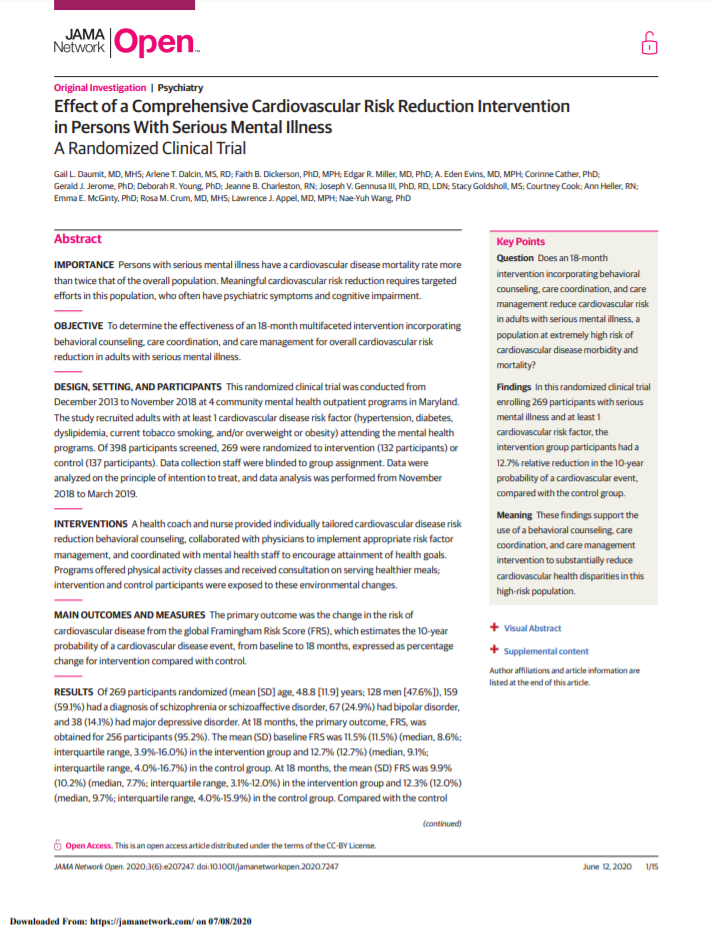Adults with serious mental illness (SMI) are at much greater risk than the general population for cardiovascular disease, and require tailored interventions to address co-occurring cardiovascular risk factors as well as other potential issues such as persistent psychiatric symptoms, social isolation, and substance use. This randomized clinical trial evaluated the impact of an intervention designed to improve cardiovascular health for individuals with SMI. The intervention included individual-level behavioral health counseling, care management, and care coordination, all based at community mental health programs and delivered by a health coach and nurse.
People with SMI and at least one cardiovascular risk factor who received this intervention over 18 months experienced a reduction of almost 13 percent in their risk of cardiovascular disease when compared to a control group receiving usual care. Notably, individuals who received the intervention were more likely to stop smoking tobacco. This study demonstrates the effectiveness of incorporating an intervention to address cardiovascular health into routine outpatient specialty mental health care settings, including behavioral health homes. Implementing tailored interventions may help improve health outcomes for individuals with SMI.



